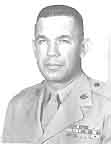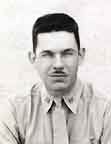|
 San Diego UnionTribune San Diego UnionTribune
Obituary
Charles S. Todd, 90; Guam defender, POW, May 22, 2004
By Jack Williams
STAFF WRITER
May 28, 2004
Less than 24 hours after the Japanese attacked Pearl Harbor,
future Marine Corps Brig. Gen. Charles S. Todd faced an insurmountable
task: defending the outmanned Pacific island of Guam.
For two days, Gen. Todd directed a machine-gun and rifle barrage
against the invading Japanese, displaying the courage and leadership
that would result in a Bronze Star with a combat V.
On Dec. 10, 1941, when Guam fell to its invaders, he was among
the U.S. forces taken prisoner.
For the duration of World War II, before his liberation in September
1945, Gen. Todd would keep a detailed journal of his days in
captivity.
On Aug. 22, 1945, the day he and fellow POWs were told the war
with Japan was over, he entered the following note in his journal:
"I believe in the long run the Japanese have given
me more in the building of my character than they took away from
it."
Gen. Todd, who went on to earn a Legion of Merit during the
Korean War and pursue a civilian career in educational administration,
died Saturday [May 22, 2004] at San Diego Hospice. He
was 90.
The cause of death was heart failure, said Marcelline, his wife
of 66 years.
After nearly four years in captivity, during which his weight
plunged from 175 pounds to less than 140, Gen. Todd remained
committed to a military career.
"He was a Marine through and through," said daughter
Margaret Dickerson.
Only a heart attack in January 1958, mandatory grounds for
retirement, prevented him from continuing his career beyond 22
years.
As a civilian, while living in Point Loma, Gen. Todd joined the
materials control division of the San Diego Unified School District
and worked 17 years as director of food services.
Charles Solon Todd was born in Columbus, Ohio, and attended Ohio
State University.
As a member of the school's ROTC program, he accepted a commission
in the Marine Corps. In March 1940, he reported to Guam as a
first lieutenant, bringing along his wife of nearly three years.
By September 1941, military dependents – including Gen.
Todd's wife and infant daughter, Anne – were ordered to
evacuate because of mounting international tensions.
Three months later, Gen. Todd, as a World War II POW, found himself
on a Japanese ocean liner bound for the Japanese island of Shikoku.
He later was transferred to Zentsuji and, in the spring of 1945,
to Roku Roshi, where he remained until the end of the war.
After the atomic bomb was dropped on Hiroshima, Gen. Todd was
among American officers at the prison whose lives were threatened
by their captors.
As Gen. Todd related the story, Japanese soldiers affixed their
bayonets to their rifles as the officers were lined up. At the
last minute, the Japanese commander thought better of it and
ordered the American officers back to their barracks.
A few days later, Gen. Todd received word from his captors that
the Japanese had stopped fighting "in the interest of world
peace."
Gen. Todd suspected the end of the war was near when prisoners'
rations, modest at best, were reduced. He was losing 6 to 8 pounds
a month at the time.
He tried to make the most of his days in captivity by reading,
sharing recipes with fellow prisoners and recording his experience
for posterity, Dickerson said.
In June 1951, Gen. Todd was promoted to colonel and assigned
to Cherry Point, N.C., where he familiarized himself with naval
aircraft supplies during the Korean War.
From August 1952 to July 1953, he was attached to the First Marine
Aircraft Wing in Korea. His role as assistant chief of staff
for supply earned him a Legion of Merit with a combat V.
His last duty station in the Marine Corps was Camp Pendleton,
where in August 1957 he was assigned command of the First Force
Service Regiment.
Survivors include his wife, Marcelline; daughters, Anne T.
Palmer of Cleveland and Margaret Dickerson of San Diego; son,
Charles Jr. of Aliso Viejo; brother, Herbert of Audubon, Pa.;
and two grandchildren.
A graveside service is scheduled for 10:30 a.m. today at Fort
Rosecrans National Cemetery. Donations are suggested to San Diego
Hospice or Point Loma Community Presbyterian Church.
Jack Williams: (619) 542-4587; jack.williams@uniontrib.com |

 San Diego UnionTribune
San Diego UnionTribune